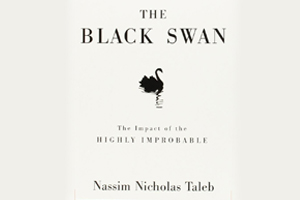Author: Peter Lynch
Earning well, is the lifelong ambition for most people who struggle with their expenses and financial freedom. While everyone earns in some way or the other, there are few who can boast that they know how to earn well, and this makes wealth a dividing factor for the society at large. Imagine an ecosystem where every individual knows how to earn well – such a society would never experience poverty or the many ill-effects caused by this societal malaise.
In his interesting treatise on how to earn well, aptly titled Learn to Earn, Peter Lynch, famous American investor and author, shares his insights on how individuals can go forward and realize their dreams of financial independence. As one of the most successful investors of all time, Lynch knows enough about financial wellness to be able to offer you actionable insights, and that is exactly what his book unlocks – wisdom that will allow you to fulfill your financial goals and more, without getting burned out in the quest for sustainable wealth.
Key Takeaways
- When you find something that you enjoy doing, you find it easier to give the task everything you have. And, when these two aspects come together, your finance will take care of itself.
- Too many people file for bankruptcy each year – and it is up to you to learn the tips and tricks which prevent you from losing your money.
- Limited liability is the reason why people are willing to invest in companies and shares because, if investors were held responsible for the mistakes made by the company, no one would be willing to invest.
- If you are someone who has a stake in the enterprise then it is likely that you will work harder to achieve the goals of the company. Further, it is likely that this would also make you happier.
- Big companies are usually a better bet for you, because they are less likely to go bankrupt, and more likely to offer dividends. They are also less risky and can be sold off at a profit, when the time is right.
- Debt is akin to reverse savings – the more you have of it, the worse off you will be.
There are many important lessons to be gathered from Learn to Earn, which is also considered the beginner’s guide to investing and business. As an individual, there are many mistakes that you may make, the first and foremost being living in debt. For a normal person keen on purchasing an expensive item, be it a car, home or even a smartphone, credit cards or loans may be the best option. But you would do well to remember that debt is a slippery slope. The more you amass of it, the more it engulfs you, until such time as getting out of the debt trap may become impossible. This is what leads many people into bankruptcy. These and many other wise nuggets are shared by Peter Lynch in Learn to Earn.
Understanding investments
While we have all heard of investing, and many of you have probably already started your investing journey, there are some basic tenets you must remember. First of all, the purpose of investment is to allocate money with the aim of realizing profits in the future. Therefore, investments need to be made with a clear focus on the asset’s possibility of growth. You can invest in a variety of asset classes ranging from bank savings and fixed deposit accounts to mutual funds, stock markets, and commodities. But you must remember that where you invest would depend on your financial goals and risk appetite, as well as your return requirements. Investing is the best way to make your money work for you and it is also a prime lesson towards earning money. After all, there is only so much you can earn by working tirelessly. You must also be able to make your hard-earned money work for you, and this can only be done through optimal investments. And, while you wait for your investments to bear fruit, you must also remember that patience is a virtue in the investing world – you would have to wait years for your money to offer effective returns.
Where should you invest?
The next question revolves around where you should invest. Taking the decision to invest is comparatively easy – each one of us wishes to earn profits and we all know that investing is the effective choice. However, given the array of investment options available to you today, the where can get extremely confusing. The main investment options available to you include bank deposits, stock markets, mutual funds, and government bonds or fixed income. You need to understand that leaving all your money in banks is not an effective investment strategy. Given the rate of inflation, such an act would be tantamount to losing money in the longer term. Therefore, you need to diversify or divide your money across various asset classes, based on your investment goals, to make the most of the opportunities available. Another benefit of investing your money is that you allow your wealth to become a part of the larger economy, since each of these asset classes are integral parts of the global financial ecosystem.
Why investing in economic growth is essential
Just as all of us require money to grow more wealth, so also the country, and the globe at large, requires money to grow and offer more opportunities to its populace. Investment is a primary source of income for the economy, which utilizes your invested money to grow different resources, thereby, enhancing the employment rate. It is through such economic investments that your wealth and earning capacity continue to grow. When you invest in bank deposits or the stock markets, you provide banks and companies with the capital necessary to grow, and it is this growth which generates returns for you as a profit on your investment. This wealth is also grown further by the companies and banks, and shared with their employees as salary/bonus payment. The entire circle continues to repeat till such time as people remain invested in economic development. Therefore, investors can be considered as the primary link to a capitalist chain. The more you invest in the country, the more you will earn out of it, in addition to also benefitting your employed compatriots.
Chief investment goals to consider
The next important aspect to understand is that of financial goals. When you undertake any task, be it at work or in your personal life, you would usually have a goal behind it. For instance, if you choose a specific field of study for your post graduate degree, the goal behind said decision is to garner specialized knowledge and then, in time, attain gainful employment in the field of your choice. Similarly, your investment would also require a goal for it to be successful, because it is the goal which helps you assess your time horizon and the return requirement most likely to help you achieve your goal. Based on these aspects, you can easily decide on where you should invest your money.
Decoding the stock market
Once you know how much you want to invest, for how long, and for what rate of returns, you can turn towards the mode of investment. One of the main asset categories, and the foremost preference of investors with a high appetite for risk, is the stock market. However, many people stay away from stock markets which have the potential to offer high returns, owing to a lack of knowledge and an intense fear of the underlying risk. As a potential investor, you should know that, historically, the stock market has proved reliable and profit-making over the longer term, making it an excellent opportunity for someone open to a long-term commitment. Once you decide to dip your feet in the stock market, you should start slow and only invest small amounts. As with every field, practice is what helps you become perfect in stock markets too. So, start small and keep practicing, till you become confident of your next steps. Investing in stock markets is also a great opportunity to become a part of the success story of a company, so only invest in companies that you believe in, rather than following fads and unreliable trends.
As an investor who wishes to earn money, the world is your oyster. There is huge untapped potential available in the domestic and global markets, both stocks and fixed income, as long as you are willing to take the efforts required to unearth them. Be diligent in your exploration and maintain curiosity about every aspect of the market. Remember that your money needs to work for you, if you harbor ambitions of becoming wealthy. It is very easy to get waylaid by the circle of debt but, it is much more fulfilling and fruitful to enter the rewarding circle of investments. Not only do you benefit yourself, you also become capable of promoting the growth of your country and the companies you believe in.
Clearly there are many investment gems in the book. However, the big question is that how do you discover and benefit from these gems. The answer lies in mutual funds. Mutual funds are an investment vehicle that give you an opportunity to build a diversified portfolio spread across multiple investment types like equity, debt, and commodity. They help you spread your risk such that you can benefit from the performance of multiple investment opportunities while lowering the overall risk of your portfolio. In addition to that, a key thing about mutual funds is that you can invest in them via the Systematic Investment Plan (SIP) route. This allows you to invest a fixed amount of money on a periodic basis, which could be fortnightly, monthly or even quarterly, in an investment of your choice. By choosing to invest via an SIP, you can reap the benefits of compounding and rupee cost averaging – both can help you in your long-term wealth creation journey.
An investor education initiative by Edelweiss Mutual Fund.
All Mutual Fund Investors have to go through a onetime KYC process. Investor should deal only with Registered Mutual Fund (RMF). For more info on KYC, RMF and procedure to lodge/redress any complaints – please visit on https://www.edelweissmf.com/kyc-norms
MUTUAL FUND INVESTMENTS ARE SUBJECT TO MARKET RISKS, READ ALL SCHEME RELATED DOCUMENTS CAREFULLY.
Trending Books
MUTUAL FUND INVESTMENTS ARE SUBJECT TO MARKET RISKS, READ ALL SCHEME RELATED DOCUMENTS CAREFULLY.

















